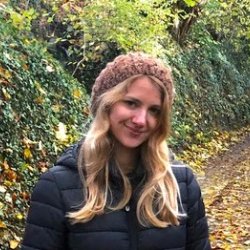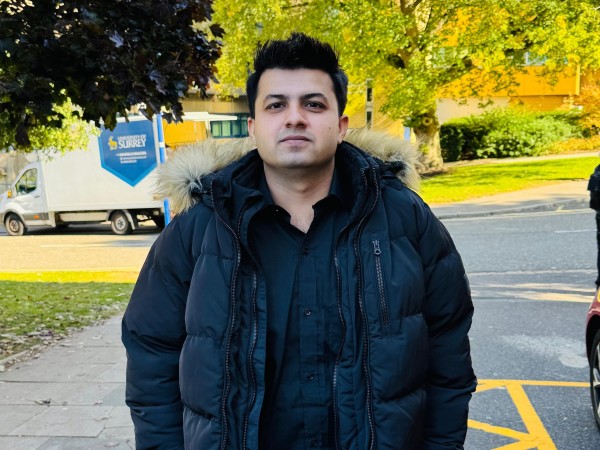
Emily Baynes
Emily Baynes isstudying for her MSc in Batteries, Fuel Cells and Energy Storage Systems in our Department of Chemical and Process Engineering, after initially doing her undergraduate degree in ourDepartment of Electrical and Electronic Engineering. Here, she tells us about the work she's doing with a community-led solar farm and her ambitions for the future...
Course
MScEntry year
2019Placement company
WilliamsResearch project
Sustainable Energy Systems
Choosing Surrey
“I did my undergraduate degree in the Department of Electrical and Electronic Engineering at Surrey. When I completed that, I decided to switch to the Department of Chemical and Process Engineering and do my masters here as well.
"I knew I wanted to do something with energy or power, but I wasn’t sure in what capacity. The MSc Batteries, Fuel Cells and Energy Storage Systems covers a wide range of areas, such as energy storage and economics. That opened up the area of sustainable energy to me."
My course
"The initial challenge of moving from electrical engineering was tough. I’d been in that department for four years. I was surrounded by friends and I was comfortable. Deciding I was changing departments to chemical engineering was a bit scary.
"I’ve had to do two economic modules at masters level. It’s been a bit daunting to study those, but I’ve enjoyed them. It’s given me a different perspective on energy, too.
"I feel I understand energy policy now. Before I wasn't really aware of how the application of technology impacts on the world. For example, as an engineer, we don't really learn about how renewable energy can lead to negative electricity prices."
My research
"I did a module on solar energy and, as part of that, we went to visit Meadow Blue Energy, a community-led solar farm near Chichester in Sussex.
"After talking to the people there about the solar farm and what aspirations they had for it, I suggested I could do some work for them. They’re looking at either putting in a battery the size of a shipping container or installing more solar panels. I’m doing a feasibility study looking at the technical, commercial and environmental aspects of both options."
Professional placement
"As part of my BEng in Electrical and Electronic Engineering, I did a year-long placement at Williams Advanced Engineering, which is a subsidiary of Williams Formula One. That involved electrical vehicle design and electric battery design.
"The placement gave me a better understanding of the workplace environment and workplace expectations. I worked in a consultancy that was designing harnesses, then another part of the team was examining what type of batteries were going to be used in the vehicles. I now have relevant experience to talk about in job interviews."
Life at Surrey
"I love the fact Surrey is a campus university. It’s like a village. I’ve also made a really good group of friends and we go for coffee and study together. The fact I made such good friends was a key factor in me choosing to stay here for my masters.
"I’m more confident in myself and how I express myself. I’m more confident about my own work, too.
"Any student thinking about Surrey should come to an open day and see the campus and the departments, if possible. That’s certainly what made the decision for me.
"The clubs and societies are great, too. I joined the Athletics and Cross Country society and it was nice to make friends outside of my course. And, obviously, it means I’ve done more exercise and improved my running. Speaking to fellow students, the societies and clubs are a massive part of their lives, too."
The future
"What I’m most passionate about is the transition to net zero carbon emissions. I want to make a meaningful impact as an engineer. I like the fact I can use my masters degree to work in the area of sustainable and clean energy, and that I can make a meaningful contribution.
"I want to work in the area of sustainable energy and clean energy and I’m interested in energy research and policy."
Find out more about our Chemical and Process Engineering courses.

